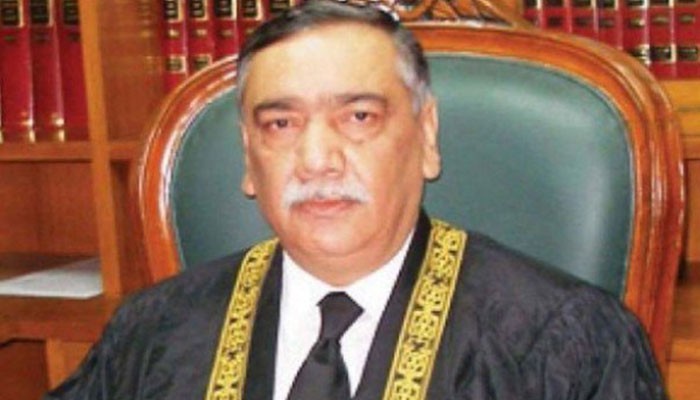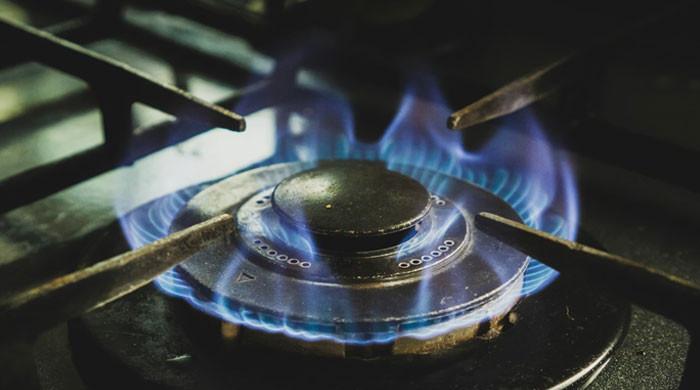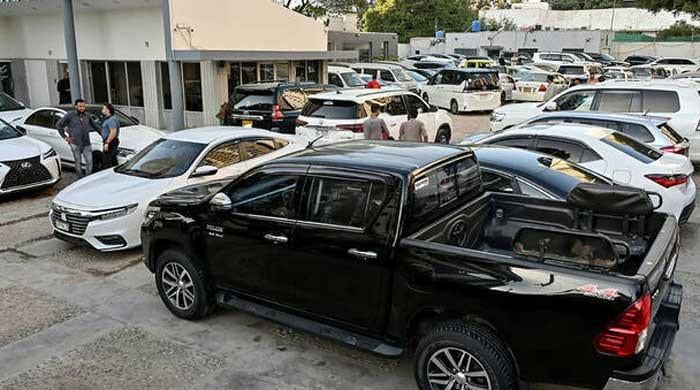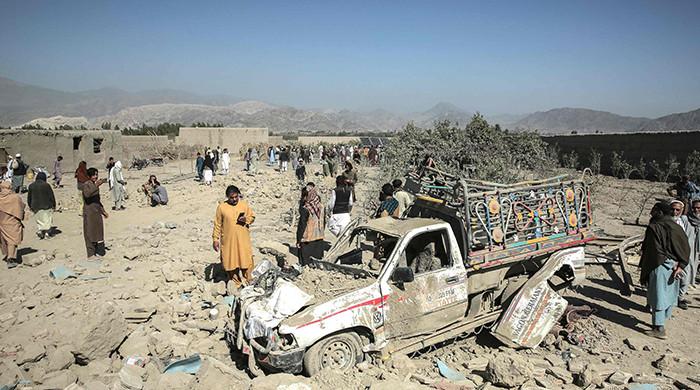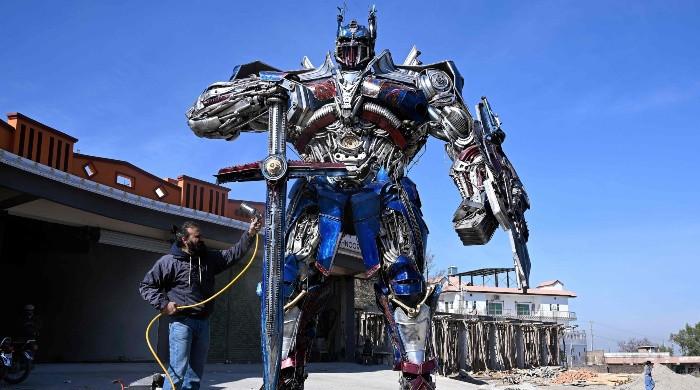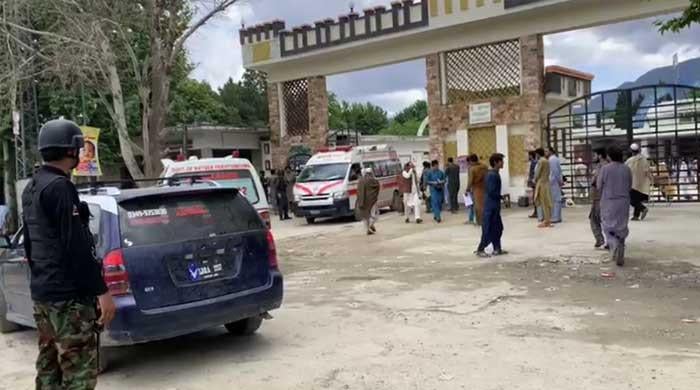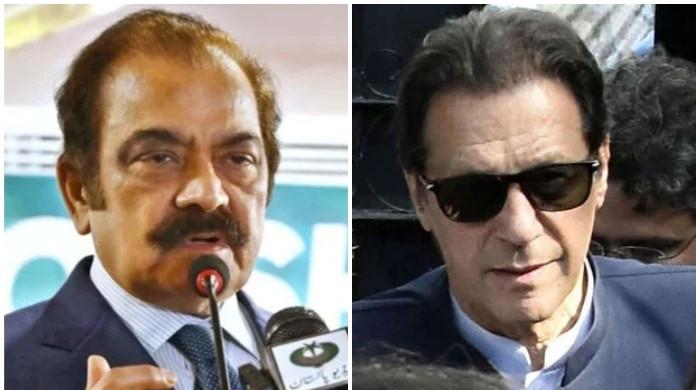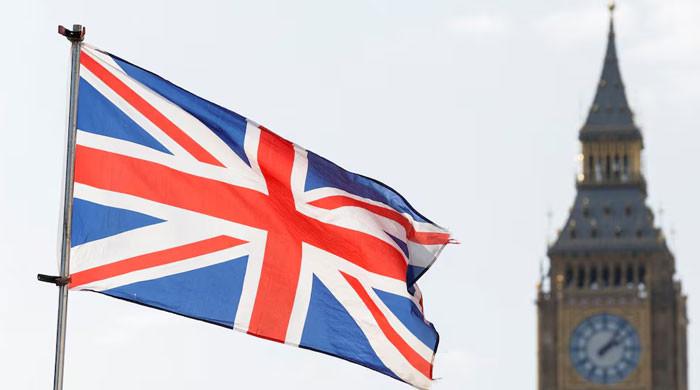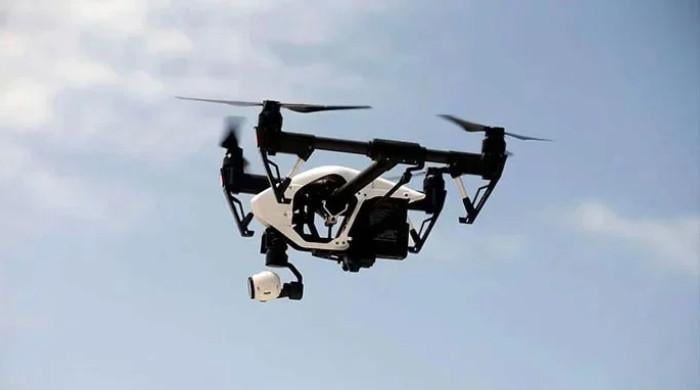Suo motu powers to be used sparingly, says CJP-designate Justice Khosa
Justice Khosa, who will take charge as chief justice tomorrow, vows to speed up delivery of justice in civil courts
January 17, 2019
ISLAMABAD: Justice Asif Saeed Khosa, who will take charge as the chief justice of Pakistan on Friday, said the Supreme Court will use its suo motu powers only sparingly.
Speaking at a full court reference held in honour of the outgoing chief justice Mian Saqib Nisar earlier today, CJP-designate Khosa said suo motu notices during his tenure will only be taken "very sparingly and only in respect of larger issues of national importance" where another solution is not in sight.
"Suo motu exercise of this Court’s jurisdiction under Article 184(3) of the Constitution shall be exercised very sparingly and only in respect of larger issues of national importance where either there is no other adequate or efficacious remedy available or the available constitutional or legal remedies are ineffective or are rendered incapacitated," he said, adding that the court would set up parameters for suo motu powers.
.
.
On the subject of military court trials, Justice Khosa said "military courts trying civilians in criminal cases are universally perceived as an aberration propelled by necessity and expediency."
"If the legislature, in its own wisdom, decides to continue with such courts for the time being then it may consider providing for appeals from their decisions to lie before a High Court so as to adjust such courts in the normal judicial hierarchy and to ensure that expediency does not trump justice," he said.
Vowing to ensure speedy delivery of justice during his upcoming tenure, the judge said, "Shorter formats of judgements and orders ought to be introduced so that time of the courts is not wasted in writing unnecessary details and, as far as possible, law clerks, research assistants and judgement writers may be provided to the judges at all levels so that their time may be saved in matters of research and drafting.
Referring to Justice Nisar's efforts to raise donations to build the Diamer-Bhasha dams, Justice Khosa said that he too "will build a dam against fake cases, pending cases."
"Mian Sahib had once observed publicly that he is left with only two ambitions in life, i.e. to build dams and to retire the national debt. I would also like to build some dams, a dam against undue and unnecessary delays in judicial determination of cases, a dam against frivolous litigation and a dam against fake witnesses and false testimonies and would also try to retire a debt, the debt of pending cases which must be decided at the earliest possible."
"There are about 1.9 million cases pending in the country before all the courts put together and to handle such a huge number of cases there are only about 3000 Judges and Magistrates available from top to bottom," Justice Khosa observed.
.
.
"It is, therefore, time to take some big and hard decisions. It is also time to introduce some structural and systemic changes so as to minimise litigation, eliminate unnecessary delays and rationalise the workload. Time has also come when the judicial system as a whole needs to be redesigned or restructured and made simple and effective," he asserted.
The incoming chief justice emphasised that all institutions need to work together for the progress of the country, and that there was a need for conversation on whether any institution was interfering in another institution’s work.
"Let us admit that in the recent past there has been a trust deficit between different organs of the State and every organ has reasons for sticking to its declared position... Let us discuss where each other’s domain has been encroached upon in the past and try to resolve such issues through a mutually agreed course of action. Let us discuss the alleged encroachment of the executive domain by the judiciary through interference in matters of policy, the alleged excessive use of its constitutional jurisdiction in matters which are administrative in nature and how best the judiciary can return to its normal but effective adjudicatory role...
"Let us also discuss, without mincing words or feeling shy, the role of the armed forces and the intelligence agencies in the governance paradigm. Civilian supremacy as well as civilian accountability are sine qua non for democratic sustainability."
He further said there was need for a debate on the charter of governance under the tutelage of the president of the country.
"I am of the opinion that we have reached a stage in our national life where we must take stock of the mistakes committed in the past and to come up with a Charter of Governance so as to ensure that such mistakes are not repeated in future. I would propose that such a summit may be attended by the top parliamentary leadership, the top judicial leadership and the top executive leadership including the military and the intelligence agencies," he remarked.
